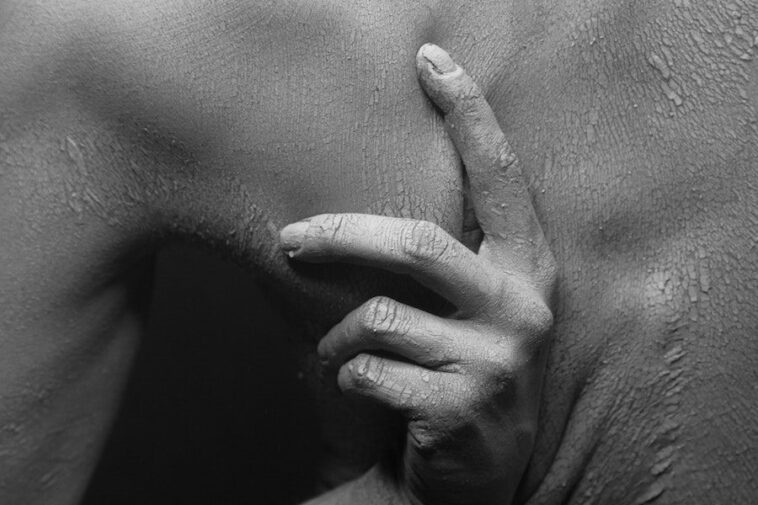Experiencing testicular itchiness at the age of 14 can be a perplexing and uncomfortable ordeal. It’s important to understand that this issue is relatively common during adolescence due to the significant changes happening in your body. In this article, we’ll explore why your testicles may itch at this age and offer guidance on how to manage and alleviate discomfort. By the end, you’ll have a better grasp of the causes, preventive measures, and when it’s essential to seek professional help, ensuring you can navigate this aspect of puberty with confidence and knowledge.
Why Are My Balls So Itchy At 14?
Experiencing testicular itchiness at the age of 14 is relatively common and can be attributed to several factors related to puberty and personal hygiene. Here are some potential reasons why your testicles may be itchy:
- Hormonal Changes: Puberty triggers significant hormonal fluctuations in your body, leading to changes in the skin’s oil production. This can make the genital area more prone to itchiness and irritation.
- Sweating: Increased physical activity and sweat production during puberty can create a moist environment around the genitals, which may lead to itchiness and discomfort.
- Hygiene: Inadequate genital hygiene, such as not washing the area regularly or not drying it properly after bathing, can contribute to itchiness and skin irritation.
- Tight Clothing: Wearing tight or restrictive underwear or clothing can cause friction and chafing, leading to itchiness.
- Allergies and Irritants: Allergic reactions to certain fabrics, detergents, or personal care products, such as soaps and lotions, can result in itchiness.
- Infections: While less common, fungal infections like jock itch or bacterial infections can also cause testicular itchiness. These typically require medical treatment.
- Sexually Transmitted Infections (STIs): In some cases, itchiness may be a symptom of an STI. It’s crucial to practice safe sex and seek medical attention if you suspect this is the cause.
How To Apply Treatments Safely?
Applying treatments safely to alleviate testicular itchiness requires careful attention and following the instructions provided with the specific treatment. Here are some general guidelines for applying treatments safely:

- Read the Instructions: Always begin by reading and understanding the instructions provided with the treatment. This will include information on how much to apply, how often to use it, and any potential side effects or precautions.
- Clean the Area: Before applying any treatment, ensure that the genital area is clean and dry. Gently wash the area with mild, fragrance-free soap and lukewarm water. Pat it dry with a clean towel.
- Use Clean Hands: Wash your hands thoroughly before applying any treatment to prevent introducing dirt or bacteria to the affected area.
- Apply a Thin Layer: Apply the treatment sparingly and evenly to the itchy area. Avoid using an excessive amount, as this may lead to further irritation.
- Avoid Contact with Eyes and Mucous Membranes: Be cautious not to get the treatment near your eyes, mouth, or any mucous membranes. If contact occurs, rinse with plenty of water immediately.
- Wash Hands After Application: After applying the treatment, wash your hands again to remove any residue and prevent accidental transfer to other parts of your body.
- Follow the Recommended Frequency: Stick to the recommended frequency of application as stated in the instructions. Do not use it more often than directed, as it may exacerbate the problem or lead to skin irritation.
- Monitor for Adverse Reactions: Pay attention to how your skin responds to the treatment. If you experience any unexpected side effects, such as increased redness, swelling, or a rash, discontinue use and consult a healthcare professional.
- Avoid Scratching: While using treatments, refrain from scratching the itchy area, as this can worsen irritation and potentially introduce harmful bacteria.
- Keep the Area Dry and Cool: It’s often helpful to wear loose-fitting, breathable clothing to allow air circulation and keep the area dry.
Home Remedies And Otc Solutions
- Warm Water Soaks: Soaking your genitals in warm water (not hot) can help relieve itchiness and discomfort. Add a few tablespoons of plain, uncooked oatmeal to the bathwater for added soothing benefits.
- Aloe Vera Gel: Apply a small amount of pure aloe vera gel to the itchy area. Aloe vera has natural anti-inflammatory and soothing properties.
- Cool Compress: Use a clean, damp cloth or a cold pack wrapped in a thin towel to gently apply a cool compress to the itchy area. This can help reduce inflammation and alleviate itchiness.
- Cornstarch or Baking Soda: Dusting the genital area with a thin layer of cornstarch or baking soda can help absorb excess moisture and reduce friction.
Tips For Maintaining Good Hygiene
Maintaining good hygiene is essential for overall health and well-being, including the genital area. Here are some tips for maintaining good hygiene, which can help prevent testicular itchiness and other related issues:
Regular Bathing: Take showers or baths regularly, ideally at least once a day, to keep your body clean. Use a mild, fragrance-free soap to wash the genital area gently.
Proper Washing Technique: When washing your genital area, use your hands and a gentle, circular motion. Avoid using harsh scrubbing tools or excessive force, as it can irritate the skin.
Rinse Thoroughly: Ensure that you rinse off all soap and shampoo residue from your genital area to prevent skin irritation.
Dry Thoroughly: After bathing, pat the genital area dry with a clean, soft towel. Make sure it’s completely dry before putting on underwear or clothing.
Wear Clean Underwear: Change your underwear daily, or more often if you sweat a lot. Choose underwear made from breathable materials like cotton to reduce moisture buildup.
Avoid Tight Clothing: Opt for loose-fitting clothing, especially underwear, to prevent friction and chafing in the genital area.
Trim Pubic Hair: If you have a lot of pubic hair, consider keeping it trimmed to reduce moisture retention and make cleaning easier.
Practice Safe Sex: If you’re sexually active, use condoms to protect against sexually transmitted infections (STIs). Maintaining good sexual health is part of overall hygiene.
Avoid Sharing Personal Items: Don’t share towels, razors, or any personal items that come into contact with your genital area to prevent the spread of bacteria or infections.
Be Mindful of Public Facilities: When using public restrooms or showers, use disposable seat covers or a clean towel to sit on. Avoid direct contact with potentially unclean surfaces.
Regular Laundry: Wash your underwear and other clothing items that come into contact with your genital area regularly, using a mild detergent and warm water.
Stay Dry: After physical activities or sweating, change into dry, clean clothes as soon as possible. Moisture can contribute to itchiness and irritation.
Monitor for Changes: Pay attention to any changes in your genital area, such as unusual rashes, lumps, or persistent itchiness. If you notice any concerning symptoms, consult a healthcare professional.
Conclusion
In conclusion, experiencing testicular itchiness at the age of 14 is a common occurrence, often linked to the changes brought about by puberty. Understanding the various causes, practicing good hygiene, and utilizing home remedies or over-the-counter solutions can offer relief and empower young individuals to manage discomfort effectively. It is essential to approach these concerns with open communication, seeking guidance from trusted adults or healthcare professionals when necessary. By prioritizing hygiene and health, adolescents can navigate this aspect of their development with confidence and well-being.
FAQs
Why Are My Testicles Itchy At 14?
Testicular itchiness at 14 is often due to hormonal changes during puberty, sweat, or inadequate hygiene.
How Can I Relieve Testicular Itchiness?
Maintain good hygiene, wear breathable underwear, and use OTC creams like hydrocortisone for relief.
When Should I See A Doctor About Testicular Itchiness?
If itchiness persists, worsens, or is accompanied by unusual symptoms like lumps, consult a healthcare professional.
Are There Specific Hygiene Products I Should Use?
Use mild, fragrance-free soaps and hypoallergenic laundry detergents for sensitive skin.
Can Tight Underwear Cause Testicular Itchiness?
Yes, tight underwear can lead to friction and moisture retention, contributing to itchiness. Opt for loose-fitting, breathable underwear.





